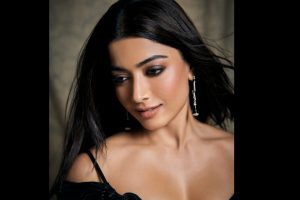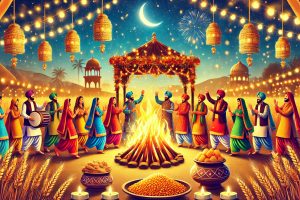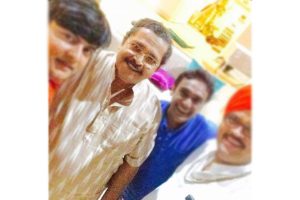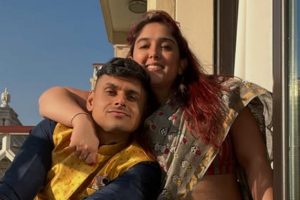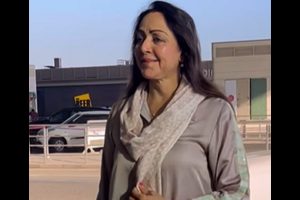
New Delhi: From the delectable cuisine of Punjab to its beautiful village artifacts and foot tapping music – the Baisakhi Mela threw open the multiple facets of Punjab for the people of Delhi today.
As Punjabis all around the world mark the beginning of a new calendar with the harvest Festival of Baisakhi, the three-day annual cultural celebration kicked off in Delhi at the Indira Gandhi Centre for the Arts. The Festival is presented by Punjabi Academy and Department of Art, Culture & languages, Government of Delhi.
On the opening evening of the Festival, well-known Punjabi singers Shipra Goyal and Master Saleem (of Maa da ladla fame) regaled the audience with their performance.
In a setting that replicates a typical vibrant Punjabi village, the Mela puts different facets of Punjabi life on display. There is the best exotic food from Punjab and the most authentic arts and artefacts such as Phulkari, Nale Parande, Bangles, inlaid wooden Furniture & Punjabi Juttis to give your wardrobe an ethnic look.
The Festival is also enriched with beautiful cultural programmes such as Gatka, Bazigar, Dhadi, Naqal, Gidha, been, algoza dhol and Bhangra. The evenings are devoted to musical performances by some well-known Punjabi singers who will showcase different facets of Punjabi music, from Pop, Bhangra to Sufi and Folk Music.
On the second day of the festival well-known singer Harshdeep known for singing mellifluous sufi renditions such as ‘Heer’ and ‘Kabira’ will perform at the festival. Singer Vatsala Mehra will also contribute to the cultural evening of April 11. The last day will see popular Punjabi singer-actors Hardy Sandhu, and Ami Virk light up the cultural evenings.
“If you live in Delhi, you live in the midst of a thriving Punjabi community. The Punjabi food and culture is bound to touch you in many ways. However, the urban shift of Delhi means we never get a glimpse of a true Punjabi setting, which is ethnic in every way. Punjabi culture is a rich tradition and this annual Festival is a vehicle that gives us an opportunity to present these beautiful forms of Punjabi Art and Culture,” says Secretary, Art, Culture & Languages, Government of Delhi.
“Through the Baisakhi Festival, we try to re-create every aspect of Punjabi life in a traditional setting of a Punjabi Mela where the traditional artefacts of Punjab are displayed and sold. The Phulkari, the Punjabi juttis, the wooden furniture designs are hardly ever seen in our everyday urban lives and the Baisakhi Festival is the place where you can find them.
Well-known singers of different genres have come together to present the wide and versatile facets of Punjabi music, be it the soulful Sufi music that talks about the sufi saints of Punjab, or the foot tapping bhangra, pop music, every musical form from Punjab is inspiring,” says Mr. Jawahar Dhawan, Secretary, Punjabi Academy.

